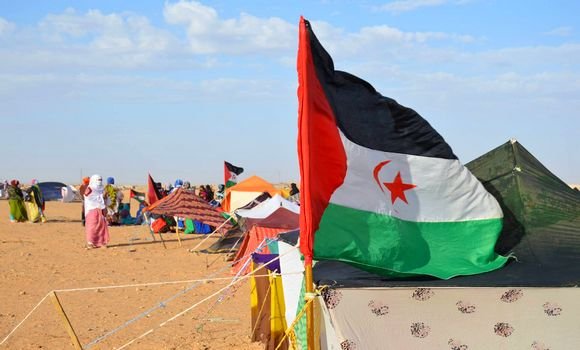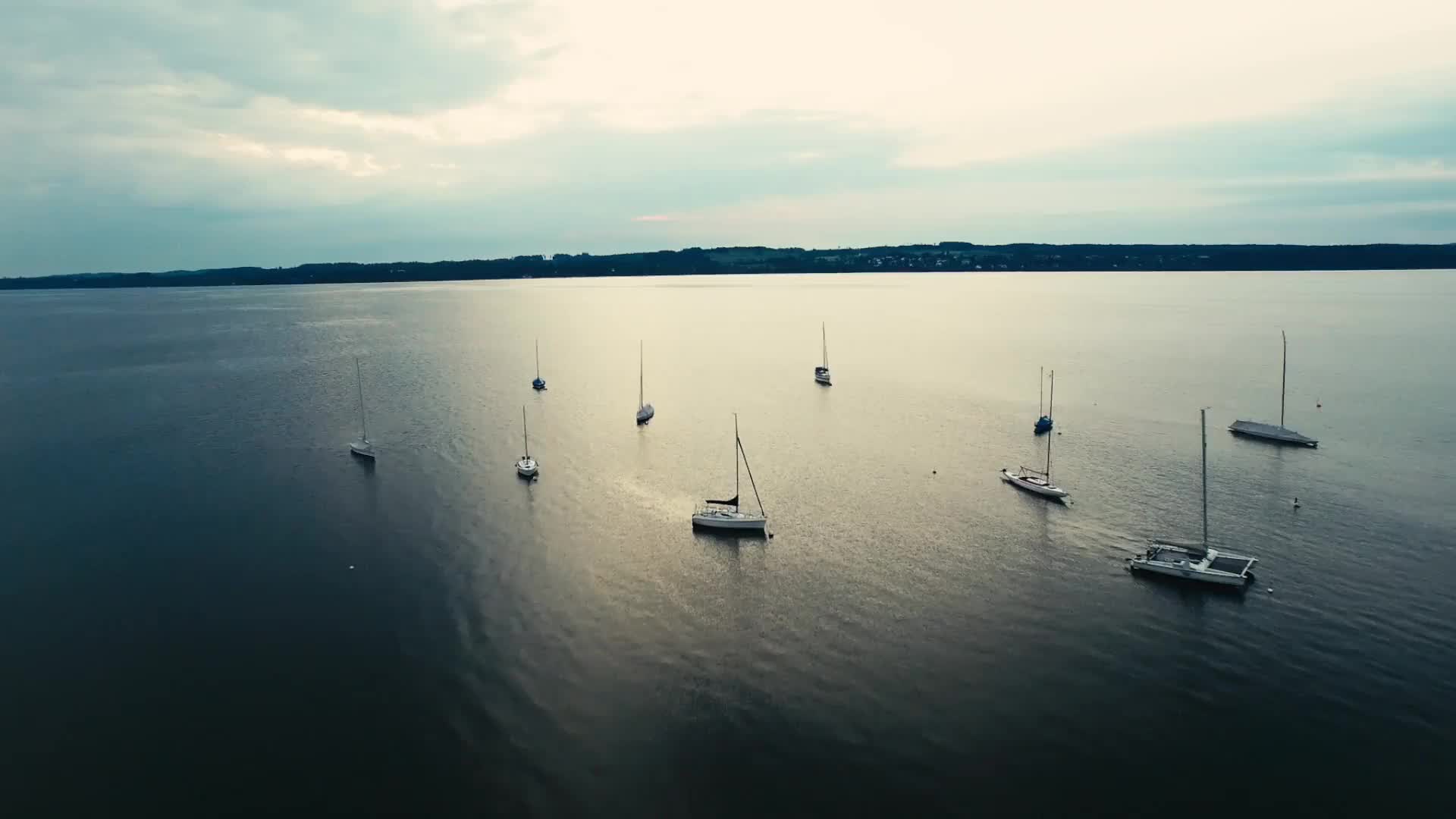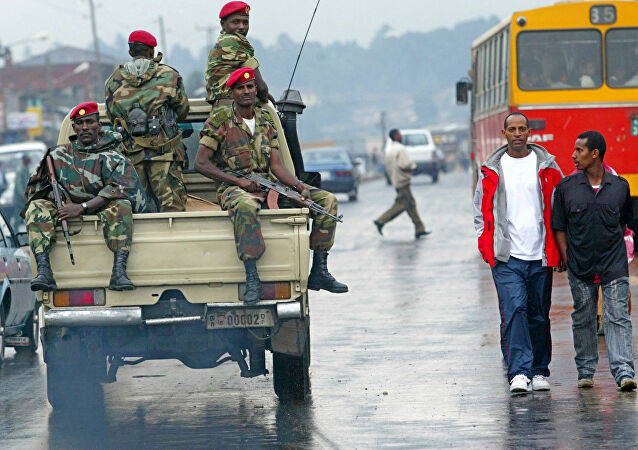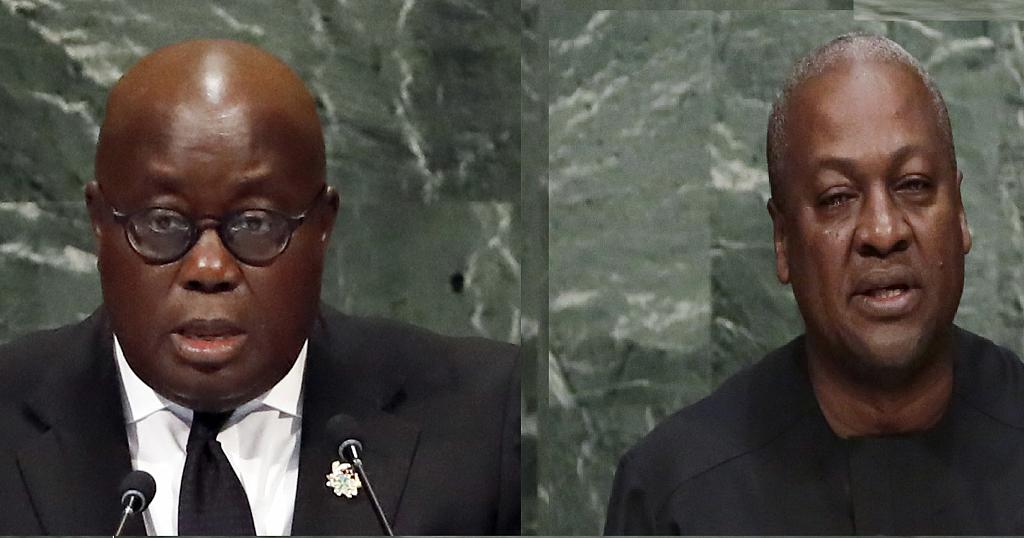Western Sahara in the African Elites’ Ideology
There have been a host of opinions regarding the Western Sahara issue. Despite the African Union and most African countries’ recognition of the Sahrawi Arab Democratic Republic (SADR) but the recent US recognition of Morocco’s sovereignty over Western Sahara will have its consequences which will also affect African countries. Although we were working on this issue prior to the recent US recognition of Morocco’s sovereignty over Western Sahara but we tried to highlight some opinions of some emerging African elites in this report: –
Dr. Adoma Babiker Al-Ansari: an expert in African affairs- Republic of the Sudan
Dr. Idir Ghaniyat: an expert in international relations- Republic of Algeria
Idris Al-Senussi: Political researcher- Republic of Nigeria
We have also referred to the vision of the Moroccan writer Allal Al-Azhar Al-Manabhi in his scholarly work (The Moroccan Sahara: The Controversy of Unity and Fragmentation) issued in January 2020
Dr. Adoma Babiker Al-Ansari, the strategist in African affairs says that the US policy towards the Western Sahara issue changes based on circumstances and interests. The US interest in North Africa began during the Cold War and the US presidents viewed the Saharan conflict as part of the ongoing conflict between the Western Camp led by the United States of America and the Eastern Camp led by the Soviet Union. But, conditions changed during the presidency of Barack Obama who viewed the Saharan conflict as a process of decolonization, and that the Sahrawi people have the right to self-determination via a referendum.
In light of these developments, what does the recent US stance on the Western Sahara issue indicate?
During the Cold War, the US continued to provide huge support to the Kingdom of Morocco regarding this conflict, and Washington had always viewed the Polisario as loyal to the Soviet Union and backed by Libya during the rule of former President Muammar Gaddafi, as well as by Algeria and Cuba. Nonetheless, the US position towards the Western Sahara issue shifted from opposing the emergence of a new Polisario state adopting socialism to an attitude supporting the Sahrawi people through arrangement of a self-determination referendum.
As such, the US State Department reported on May 1, 2008 that autonomous rule under Moroccan sovereignty was the only realistic solution to solve this long-standing crisis. Washington called on the parties to focus on future negotiations regarding an autonomous rule agreed-upon by the two parties and consistent with the aspirations and hopes of the Sahrawi people. Therefore, Rabat presented the autonomy plan, which it believed a solution that may serve human rights in Western Sahara and the Tindouf refugee camps.
In fact, the American interest in the Western Sahara crisis is part of America’s new policy towards North Africa which aims at linking America with Africa economically and strategically, considering that the former East European market was dominated by the united Western Europe following the end of the Cold War between the Western and Eastern Blocs. Hence, the Western Sahara issue became a process of decolonization for the United States of America. Consequently, the United States of America had to back the Polisario Front, considering it an extension of the ideas of the American Revolution that was based on freedom and anti-colonialism.
The US Congress and the Western Sahara Crisis
The US Congress has been concerned with the Western Sahara crisis since the early 1990’s, and therefore, decided to closely monitor the situation apart from the White House. The Congress once again supported the issue in September 1997 by voting on a bill supporting the Sahrawi peoples’ self-determination through a free and fair referendum. In January 1998, the Congress established a committee to follow up on the process of organizing the self-determination referendum in Western Sahara. Most of the congressmen believe that security in the region opens the doors to the US economic stability in there, which is only possible through a self-determination referendum that could lead to the independence of the people of Western Sahara. In addition, the aforementioned committee always recommended that the US administration maintain good relations with Morocco.
The committee’s work continued to involve working on rapprochement between the US administration and the Polisario Front officials, a thing that was positively reflected on the visit of the Polisario Front Secretary-General to the United States of America on 12/3/1999 when he met with a group of Congressmen. In the context of these relations, 33 Congressmen forwarded a letter to former President Barack Obama calling for support for the right to self-determination for the Sahrawi people. That letter coincided with the regular meeting of members of the UN Security Council who ratified Regulation No. (1871) which included a fundamental demand on the need to authorize the United Nations Mission for the Referendum in Western Sahara (MINURSO) to monitor the human rights situation in Sahrawi towns. In their letter to President Obama, the Congressmen expressed their deep concern about the continuous violations against Sahrawi civilians and appealed to him to request the United Nations carry out a thorough investigation regarding these situations. Thus, the Sahara issue gained the attention of the US administration, especially after the appointment of the Special Envoy of the Secretary-General of the United Nations, Christopher Ross who succeeded Mr. Peter Hans.
US-Moroccan relations and their impact on Western Sahara
No doubt, Morocco adopts the liberal approach regarding economic policy; therefore, it is considered the natural ally of the United States of America as the latter is the leader of the liberal order in the world. Washington is a major supplier of weapons to Morocco and it enjoys good economic ties with Rabat, not to mention Morocco’s strategic location as it controls the southern entrance to the Mediterranean. Thus, the US has a vital interest in dealing with a friendly Moroccan government. On the other hand, considering the huge American interests in North Africa, it’s noteworthy that the official position of the US presidents towards the Western Sahara issue was characterized by discreetness. Also, in spite of its distinguished relations with Morocco but Washington always endeavors to find a sort of balance in its relations with the countries in the region in general and with Algeria in particular. Thus, the US sought a peaceful solution to the crisis and was warning Morocco against use of weapons in its war against the Polisario Front. In March 1978, for instance, the US admitted that Morocco had illegally used the F-5 planes in Western Sahara, and as a result announced a moratorium on the supply of weapons to Morocco at that time.
The presidency of Barack Obama witnessed a thorough review of the US policy in the North African region which was obvious in ignoring the Moroccan initiatives for autonomy and which the US President openly expressed in a message to the Moroccan monarch during 2009 requesting empowerment of the Sahrawi people of the right to self-determination. In March 2016, amid the escalating crisis between Morocco and the Secretary-General of the United Nations, the US announced its support for Morocco and the autonomy plan in Western Sahara. To emphasize this, the US mission to the United Nations expressed its support for the work of the UN Mission in Western Sahara and described the draft Moroccan autonomous rule of the Sahara as serious, realistic and credible, confirming support for these efforts. This situation is the first of its kind since tensions began between the Secretary-General of the United Nations (Ban Ki-moon) and Rabat due to Ki-moon’s use of the word (occupation) while delivering speech about the Western Sahara crisis during his visit to the Tindouf camps, a thing that Morocco considered biased and a dangerous lapsus linguae.
The United States’ attitude towards the crisis in Western Sahara is considered a political obstacle before the peaceful settlement after Washington recognized the subordination of the Sahara to Morocco in exchange for the Kingdom of Morocco joining the trend of normalization and world peace with Israel. The US ambassador in Rabat endorsed the new Moroccan map that includes the Western Sahara as an integral part of the Kingdom of Morocco. Furthermore, the Western Sahara was considered to be the southern region of the Kingdom of Morocco, a step that may change the future of the conflict between Morocco and the Polisario Front in several points, most important of which are: –
- Will the United Nations and the African Union recognize the Moroccan map adopted by the United States and which it presented to Moroccan King Mohammed VI?
- Will the Polisario Front be classified a terrorist group in the future?
- Will recognition and normalization make Algeria appear as against the international community in light of the United States status in the Security Council?
In his book (The Moroccan Sahara: The Controversy of Unity and Fragmentation) issued by Dar Al-Tawhidi (Rabat) in January 2020, the Moroccan writer Allal Al-Azhar says: “Algeria considers the Western Sahara issue as an Algerian one, therefore, it mobilized all its economic, political and diplomatic potentials to defend it. In so doing, Algeria is utterly disregarding the union of the Maghreb”. But, why does Algeria insist on this continuing hostility against Morocco? And what are the backgrounds and goals? Is it obsession or paranoia and tendency to dominate? Or is it because of the Sand War which still represents an open wound driving the Algerian regime to take revenge from Morocco? Or is it the desire to find a passage to the Atlantic Ocean? Or is it about confronting a feudal monarchy threatening a socialist republican regime as was promoted by the Mujahid official gazette at the beginning of the conflict?
It seems that the dispute over the borders between Algeria and Morocco is the strongest reason behind this hostility according to most analysts as Morocco demanded the restoration of Moroccan lands annexed by France since independence. In 1957, France suggested a partnership with Morocco in those mineral-rich lands and to stop supporting the Algerian revolution, but King Mohammed V rejected the French offer. In the year 1961, the Algerian interim government headed by Ferhat Abbas agreed to return the lands to Morocco, but after the independence of Algeria, the Algerian government refused to implement the agreement and tensions controlled the relationship between the two countries until the Sand War broke out in 1963. The saying by President Ben Bella at that time “the Moroccans prejudiced us” echoed among the military elite and sectors of the Algerian people. Therefore, following the Boumediene coup, the Algerian regime consecrated hostility to Morocco and temporarily hid this hostility in the 1974 Arab Summit meeting in Rabat when it expressed its support for Morocco in regaining the Sahara. But the Algerian regime pursued a maneuvering policy towards the Sahara crisis as it was indirectly supporting Spanish colonialism for the belief that Morocco was unable to regain the Sahara region. The principled position of self-determination turned into a military invasion of the Sahara in January 1976 after it was regained by the Green March. The military regime opted for direct intervention in the Sahara on the side of the Polisario Front and the Algerian forces penetrated in the Sahara to the borders of Maghala and clashed with the Moroccan army. Algeria suffered heavy losses but King Hassan II returned the Algerian prisoners of war to avoid an escalation of the military confrontation with Algeria.
For Morocco, the Sahara issue is undoubtedly essential to the regime, the Moroccan people and the political forces. The regime does not have the option to concede its southern regions. Furthermore, the Moroccan regime reaffirmed its national legitimacy after two coup attempts, and it is impossible to compromise those southern regions. In order to avoid war with Algeria, Hassan II proposed the flag and postcard and will negotiate the rest. King Mohammed VI emphasized on the anniversary of November 6, 2014 that when Morocco gave chance for negotiations to find a final solution to the dispute over the Sahara, it was not and will never be at the expense of its sovereignty and territorial integrity. He stressed that the autonomy initiative is the most that Rabat can offer and no other force whatever is capable of imposing another solution on Morocco.
The secretary-General of the Justice and Development Party, Saad Eddin El Othmani considered the US declaration through a presidential decree that the Sahara is part of Morocco along with the recognition of the Kingdom’s sovereignty over all its southern regions a historic victory for the national cause and for sovereignty over the Sahara. He also highlighted the success of the efforts of King Mohammed VI in defending the Moroccan Sahara issue. On the Moroccan Hespress website, Abd al-Rahman Shashi considered the US decision a “fatal blow” to the Polisario Front.
The Nigerian researcher Idris Al-Senussi says that Nigeria, like other countries affiliated with the African Union, views the Western Sahara issue on the basis of Morocco representing another occupation after the withdrawal of the Spanish from the Sahara, and that the Sahrawi people have the right to self-determination, and as such, the strong Nigeria strongly supported liberation and self-determination. Nigeria was among countries that recognized the (SADR) in 1984 and established formal mutual diplomatic relations. However, the fledgling republic did not have a diplomatic headquarters in Nigeria until the (SADR) opened an embassy by the end of 2000 in the federal capital (Abuja) with the help of the government of President Olusegun Obasanjo.
But today, Nigeria has to reconsider its foreign policies with the Polisario and not necessarily at the expense of competitors (Morocco and Algeria) in particular. We are at a time when all conditions have changed and it’s well known that the only unchanging element in politics is that politics is ever-changing. Yes, support for the principle of self-determination regarding the case of the Polisario Front is unquestionable, but Nigeria must answer one question: Does it prefer the friendship of the Polisario or that of Morocco during these dangerous times in the Sahel region as it faces the Boko Haram rebellion dilemma in the northeastern part?
Nigeria’s support for the Polisario is based on a principle but that principle is not in its interest today because Nigeria has to carefully adopt a position that would guarantee its stability, whether domestically or externally and also in the oil market, especially since the Kingdom of Morocco has a considerable influence in West Africa.
Nigeria has no concrete gains in its relations with the Polisario and it must keep all options open. One never knows beforehand which entity is going to be of interest to his own country or which small group might play a role in diplomacy.
We in Nigeria are cooperating with the Polisario Front but without antagonizing Rabat which might be a potential ally in our struggle against terrorists in the Sahel region or other countries in the Economic Community of West African States (ECOWAS) under which treaty we are committed to provide assistance.
Necessary Notes
In recent years and in light of the economic cooperation with Morocco, the Nigerian support for the Polisario Front has diminished; the same could be said of Botswana, Tanzania, Rwanda and Ethiopia. What’s more, Nigeria was among the countries that supported the decision of Morocco’s return to the African Union after a decades-long absence. The year 2017 proved to constitute a turning point for both Morocco and the Polisario supporters, at least in Africa.
The African Union’s position on the Sahara opposes Morocco’s annexation of the territory in principle, and Nigeria is one of the pillars of the African Union and follows its principles.
Dr. Idir Ghaniyat from the People’s Democratic Republic of Algeria and professor of political science at the Islamic University of Minnesota, Senegal branch says regarding the Western Sahara issue:
Based on the statement of November 1, 1954 of the victorious liberation revolution, which stipulates the right of peoples to self-determination and the confrontation of all kinds and forms of colonialism and the liberation of the African continent from imperialism and expansionist movements that plundered their resources and caused and still cause tragedies over decades, we affirm that the Western Sahara issue falls for Algeria within this framework. Whereas the Sahrawi peoples suffer under the weight of the Moroccan occupation and the illegal exploitation of their natural resources, in contradiction with the United Nations Regulation on the Right of Peoples Subject to Foreign Colonialism to self-determination and to enjoyment of independence and various UN decisions. With reference to the international law and UN regulations, the Algerian position on the Western Sahara issue is consistent with the decision of the International Court of Justice issued in 1975, in which the International Court affirms that Morocco has no sovereignty over Western Sahara which is deemed an occupied territory to which the principle of decolonization applies. This is in addition to the decision of the European Court of Justice that the Western Sahara is not an independent region.
The Algerian diplomacy believes that it is not party to the Moroccan-Saharan conflict, but rather seeks to demonstrate the struggle of the Sahrawi people based on international legitimate decisions, especially Resolution 1515 of the UN General Assembly issued on December 14, 1960. The Resolution explicitly stipulated the need to expedite the unrestricted and unconditioned termination of all forms and manifestations of colonialism, and to take immediate measures to guarantee the right of the peoples of occupied region to self-determination and independence.
Within the framework of the aforementioned UN regulation, the Western Sahara was included among the regions enjoying self-government, which indicates the international recognition of Morocco’s occupation of a territory that is not under its sovereignty. Accordingly, we see it necessary to end the occupation of Western Sahara and empower the Sahrawi people of the right to self-determination.
The Sahrawi issue and the procrastination policy
Algeria assesses the settlement process sponsored by the UN since 1988 as pursuing a policy of procrastination. Despite the establishment of the MINURSO mission 29 years ago (1991) to empower the Sahrawi people of the right to self-determination, but nothing has changed up to date due to the inability of the UN to meet its obligations regarding enabling the Sahrawi people to exercise their inalienable right to self-determination and independence. Algeria holds Morocco legally responsible for not implementing international legal decisions and for following a policy of stalling and for freezing the settlement file for the main purpose of plundering the wealth of the occupied region.
Algeria’s firm position on decolonization in Western Sahara is also evident in President Abdelmadjid Tebboune’s speech to the African Union summit in February 2020, in which he expressed regret that the Western Sahara issue has not yet been settled. For years, the UN and the Security Council, with the support of the African Union, have been implementing the stages of a plan for the settlement of the Western Sahara issue based on the inalienable right of the Sahrawi people to self-determination, but to no avail.
It can be noted that Algeria seeks to unite sincere efforts towards finding a solution to the only outstanding issue of decolonization in Africa, a solution that guarantees the inalienable right of the Sahrawi people to self-determination by organizing a free and fair referendum in line with the relevant resolutions of the African Union and the United Nations. On the humanitarian level, Algeria supports the Sahrawi people through many occasions, such as issuing a presidential order to open an air bridge to transport humanitarian and medical aid to the Sahrawi people.
Some official responses by regional and international bodies on the Sahara issue
We can cite the European Union position through its High Representative for Foreign Affairs, Joseph Borrell, regarding Morocco’s allegations of sovereignty over Western Sahara shortly after Moroccan media published misleading and false information regarding the European Union’s position on the Sahara issue. Borrell stressed that the European Union’s position can never contradict the UN regulations, and stated in this regard that the EU’s position on Western Sahara is governed by the UN Security Council regulations and that he considers the Western Sahara a non-self governing region which final status will be determined by the results of the ongoing UN-led process. This is in addition to the rulings of the European Court of Justice that nullified economic agreements with Morocco that involve the Western Sahara.
Regarding the African Union, the (SADR) achieved a significant win by gaining the AU’s recognition under the provisions of its founding charter which Morocco ratified before acceding the organization in 2017. These provisions include defending the sovereignty, territorial integrity and independence of member states and respecting the borders existing after independence.
And considering that Morocco is an African Union member state and by referring to the supremacy of international law over national law that explicitly calls for the Moroccan regime to grant the Sahrawi people the right to self-determination via a free and unconditional referendum, Morocco goes so far as to demand the exclusion of the Sahrawi Republic from the African Union in disregard for international norms and laws. It’s an open defiance of the rest of African Union member states and a flagrant violation of the principle of equality and interdependence between countries contained in the founding document of the African Union.
The Afro-Gulf Relations Center
January 2021




